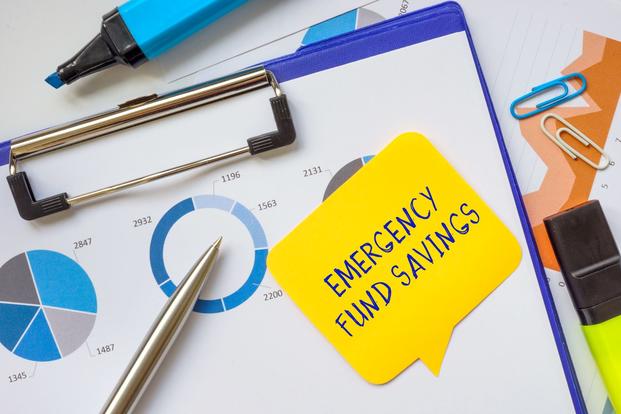Your parents or grandparents may have called it a rainy-day fund. Your wild aunt could have termed it "mad money." Financial professionals typically call it a cash reserve or an emergency fund. Whatever its name, the purpose is the same: having some money set aside for when the unexpected happens.
While some people may cringe at the term mad money, I kind of like it because it highlights the concept that "unexpected" doesn't just come in the form of bad things happening. Your emergency fund might allow you to do something fun or take advantage of an unforeseen opportunity. In any case, I hope that idea alone might help spin your emergency fund efforts in a positive way.
Yes, it's a simple concept, but let's dig a bit deeper into what I mean by "some money" and "set aside."
How Much Is Enough?
The generally accepted rule of thumb for your emergency fund is that it should equal at least 3-6 months' worth of your committed monthly expenses. Why this amount? Because one of the primary reasons to have an emergency fund is to keep you afloat financially if you should suddenly experience a loss of household income.
But protecting against lost income isn't the only reason to keep a stash of cash. It's also important to have money available to pay for unexpected expenses that your regular monthly cash flow can't cover. Even if you feel your paycheck is secure, bad things still happen to good people, and sometimes those things require cash. As a result, the amount of money that should be set aside (but not the need for having it!) really depends on the life situation and circumstances of the individual putting it away.
And while the equivalent of 3-6 months' of expenses may seem like a lot, it may not be enough. When I worked directly with military families, it wasn't uncommon for two planning factors to push their target emergency fund higher, maybe even much higher: Owning a rental property and transitioning out of the military. Those are just two situations where you might need to build a bigger reserve. My primary point: Do some planning and tailor your "enough" to your situation.
Where to Save It?
Then there's the question of where to put it. Does it all go into savings? Can you use certificates of deposit, or CDs? What about using "conservative" investments? The answers are: maybe, yes and no. The bottom line here is that since you have no way of knowing when an emergency will occur, you have no way of predicting when these funds will be needed.
So your savings really should be accessible and not subject to market volatility. In other words, you need to get the funds quickly and know they'll be worth as much as or more than they were when you set them aside. That typically means using savings accounts, money markets and maybe some short-term CDs for some of the money -- regardless of how low the interest rates on these products may be. One of the few positive byproducts of increasing interest rates over the past couple of years has been the opportunity to earn more interest on your safe and stable savings.
If you're still not satisfied with what you're earning in savings-type accounts, a workable strategy could be to create a two-tier emergency fund, with the first tier being a savings or money market account and the second tier being a short-term CD. Keep the following in mind, though, when it comes to emergency funds: Having access to your money whenever you might need it should be your primary focus. Yes, you may earn a little less on money earmarked for this important goal, but it will all be there when something goes awry.
When to Use It?
Only when it rains ... or when a mad opportunity surfaces.
Clearly, things such as big car repairs, an insurance deductible, an emergency trip home or an air conditioner on the fritz during the hot summer months come with a green light to tap your emergency fund. But maybe life has been hectic, and an unplanned weekend getaway with your significant other would provide some much-needed rest and relaxation.
I think that all of these can be valid reasons to tap your cash. Life happens, and your emergency fund will allow you to experience both good and bad without having to accrue debt or access longer-term investments. Just take care to minimize using your funds for those "mad money" things. Using rainy-day money when the sun is shining is OK occasionally, and knowing that you can creates a bit of additional motivation around the effort, but be careful.
Finally, regardless of your strategy, it's important to add to your emergency fund systematically. That way, when you have unplanned expenses, you'll automatically be restocking it. No matter what you call it, this isn't your "get rich" money. It's your "live life" and "don't get poor" money. So set one up and use it wisely.
Keep Up With Military Pay Updates
Military pay benefits are constantly changing. Make sure you're up to date with everything you've earned. Subscribe to Military.com to receive updates on all of your military pay and benefits, delivered directly to your inbox.




